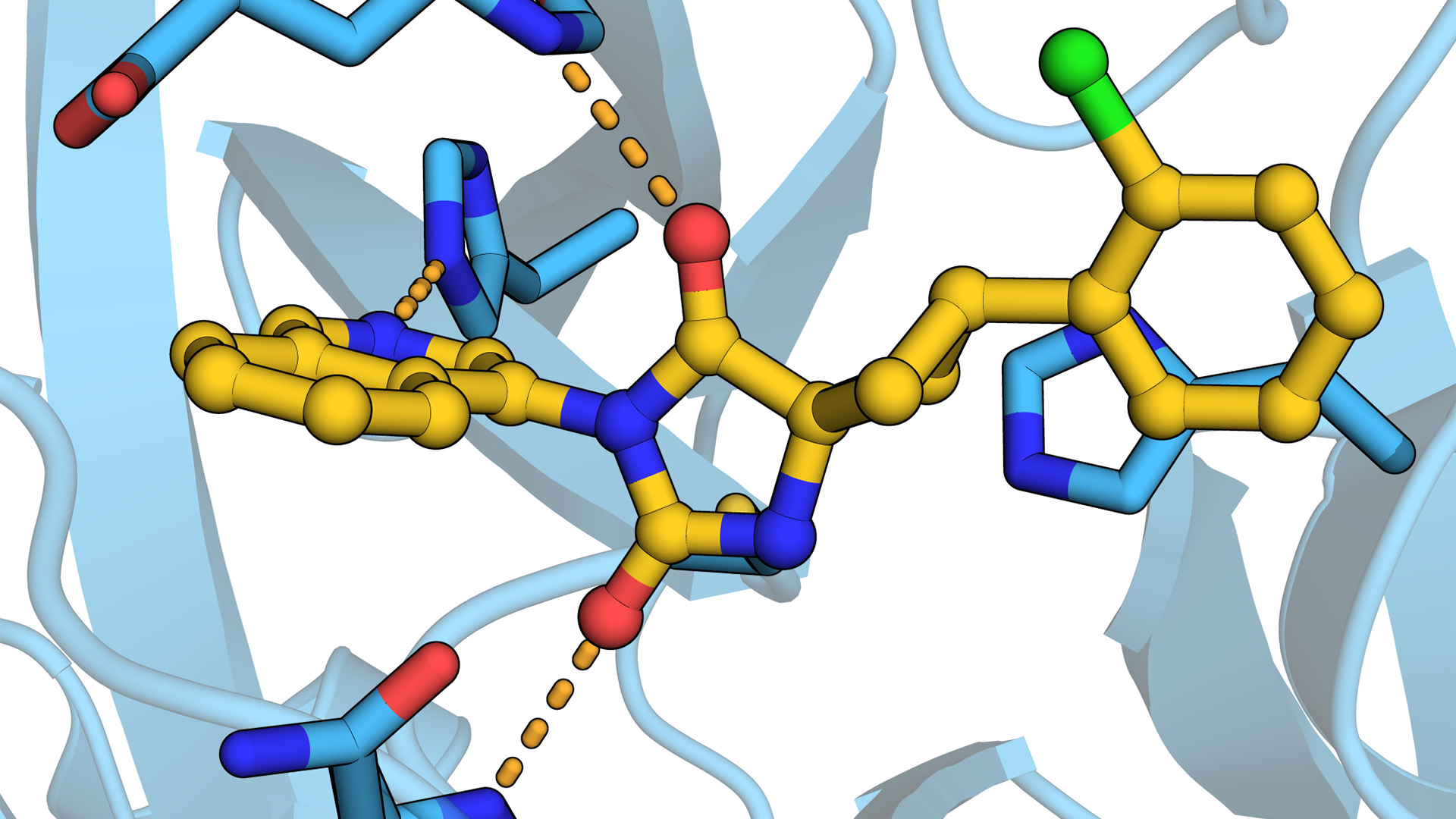Discovery of a drug-like molecule for treatment of COVID-19
As part of the SciLifeLab and KAW’s national COVID-19 research program, researchers from Uppsala University have designed a molecule that is capable of inhibiting SARS-CoV-2 replication and shows great potential to be developed into a drug suitable for COVID-19 treatment. The new molecule is effective both against SARS-CoV-2 and previously known variants of the coronavirus. The results have been published in the Journal of the American Chemical Society.
The COVID-19 pandemic has clearly demonstrated the need for antiviral drugs that can complement vaccines. Instead of activating the immune system, direct-acting antiviral drugs target the virus and stops the infection and further transmission. They can be effective in treating individuals who cannot be protected by vaccination or be used to treat high-risk groups exposed to emerging SARS-CoV-2 variants for which there are no available vaccines. A broad-spectrum antiviral could also save countless lives in future pandemics caused by other coronaviruses.
At the start of the pandemic, researchers were able to determine the components of the SARS-CoV-2 virus and identified potential targets for drug discovery. One of the most promising targets was the main protease, which is involved in a key step in the replication of the virus. Inhibition of this enzyme by a molecule that blocks its active site therefore stops the virus from infecting new cells and spreading to other individuals. The strategy to target enzymes has been used to successfully treat other viral diseases, such as HIV and hepatitis C.
In March 2020, the SciLifeLab Drug Discovery and Development (DDD) platform director Kristian Sandberg, professor Helena Danielson (Uppsala University), and SciLifeLab Fellow Jens Carlsson (Uppsala University), established a drug discovery platform for coronavirus disease. Several research groups at Uppsala University brought in the specific expertise required to identify inhibitors of the SARS-CoV-2 main protease, and were supported by the DDD-platform. To find starting points for drug discovery, Jens Carlsson used supercomputers to identify inhibitors based on the molecular structure of the main protease. Several hundred million molecules were evaluated in the computer models and promising candidates were tested in experiments by the DDD platform.
“In the most intense phase, we designed and tested hundreds of molecules per week. This would not have been possible without the expertise and infrastructure at the Drug Discovery and Development platform. Despite the restrictions caused by the pandemic, we were progressing faster than I ever experienced before”, says last author, Jens Carlsson, in a press release from Uppsala University.
The joint efforts to identify starting points for drug discovery proved to be effective. Several potent inhibitors of the main protease were identified, and these molecules are now being further developed with the goal to identify a clinical candidate.
“The most promising molecule shows the same ability to inhibit the replication of the currently circulating coronavirus as the active substance in Paxlovid, a combination drug recently approved for treating COVID-19. Our molecule works well on its own, and it is also effective against previously known variants of the coronavirus. We are now seeking partners in the pharmaceutical industry that can join us in the development of a drug that can benefit patients”, says Helena Danielson.





